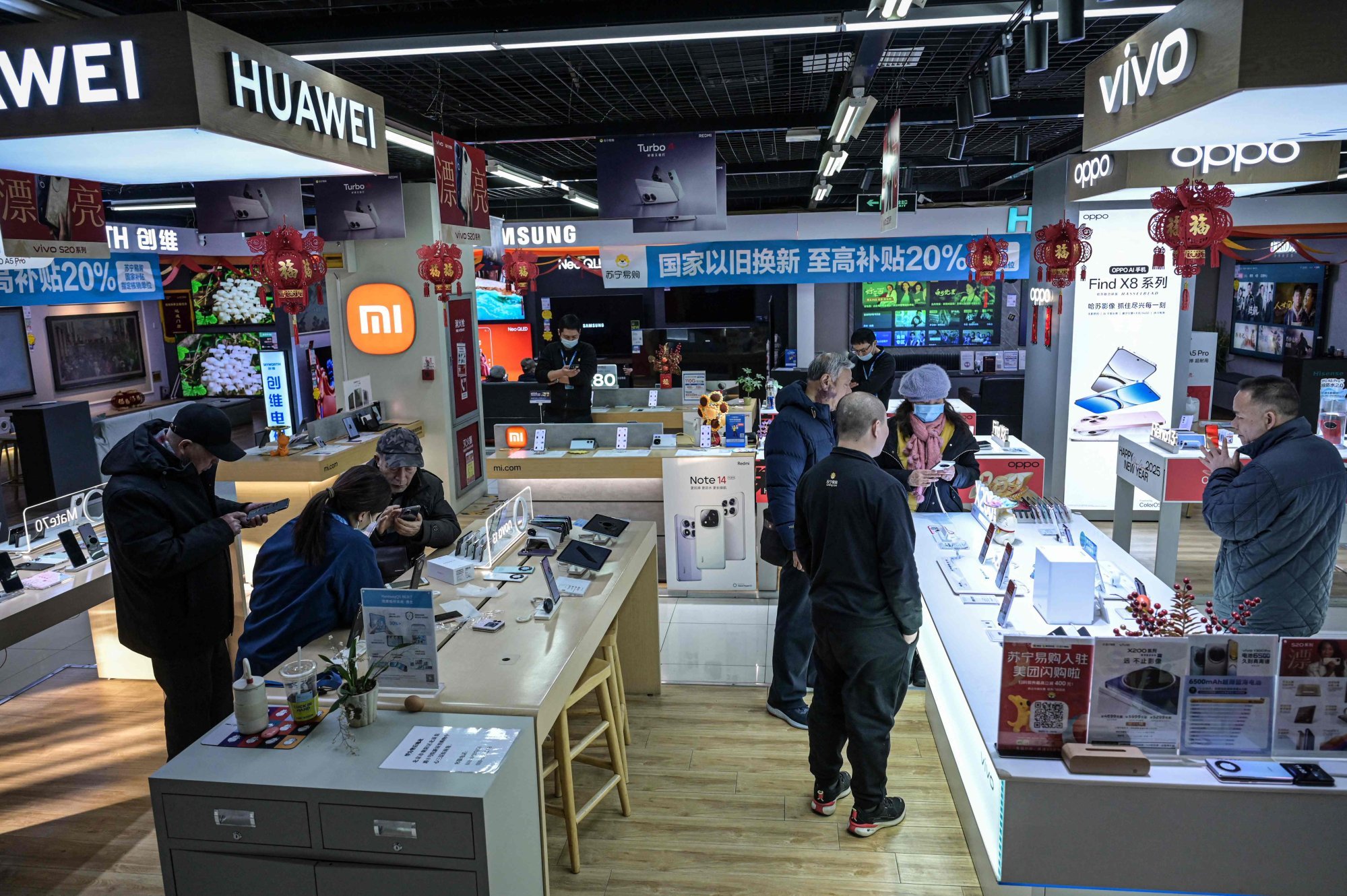
Customers shop for smartphones at a Suning electronics store in Beijing, Jan. 15. AFP-Yonhap

China's consumer sector, long plagued by a property slump that has slowed the economy and dampened sentiment, could be nearing a "tipping point", as consumers save less and spend more following last September's stimulus blitz, analysts said.
Household excess savings grew at a slower pace in 2024 and declined in the third quarter, while social retail sales rose 3 to 4 percent year-on-year, according to a UBS report published on Monday. The Swiss bank attributed this reversal to the diminishing "scarring effect" of the COVID-19 pandemic, as well as supportive government policies.
Domestic brands stand to benefit, and private labels could emerge as this year's growth driver given their low market penetration. But more importantly, they stand to benefit from a potential reversal of the "downtrading" trend seen last year.
"With the improvements in quality and channel convenience, consumers may not necessarily consider domestic brands and/or private labels as 'inexpensive substitutes' to foreign-branded products but increasingly opt for domestic brands and/or private labels with a pragmatic mentality," UBS said.
A separate survey published by the bank in October found that nearly 50 percent of respondents "converted" to domestic brands and private labels over the previous 12 months, citing "better value for money." The shift was notably stronger among consumers in first- and second-tier cities.
Investor expectations for a consumption recovery remain subdued because of the potential for higher US tariffs and continuing pressure on property prices. China's overall real consumption growth is expected to linger at around 3.8 percent in 2025-2026, according to the Monday report.
"As we are turning positive towards 2025, we also note that an uptick in consumer intention to spend hasn't fully translated into meaningful consumption growth yet, likely owing to a lingering bearish wealth effect as property prices continue to trend down [this year], albeit to a lesser degree," the report said.
In the face of sluggish export and investment growth, Chinese authorities have an even greater incentive to stimulate domestic consumption to achieve a new target for gross domestic product, which is set to be announced during the Two Sessions in March, according to Richard Lin, chief consumer analyst at SPDB International.
However, uncertainty remains over whether the authorities' stimulus measures will succeed in driving consumption.
"The key lies in whether the stimulus measures will be progressively strengthened," Lin said. "The policy introduced in September and October has benefited the home-appliance sector, with noticeable retail growth in December, largely driven by the 'trade-in for new' program."
However, the programme essentially brings forward some of future market demand, he added.
"In other words, consumers who might not have planned to replace their appliances decided to do so because of the policy," he said. "But once they've replaced their appliances, future demand might decline, making this a one-time stimulus."
Read the full story at SCMP.